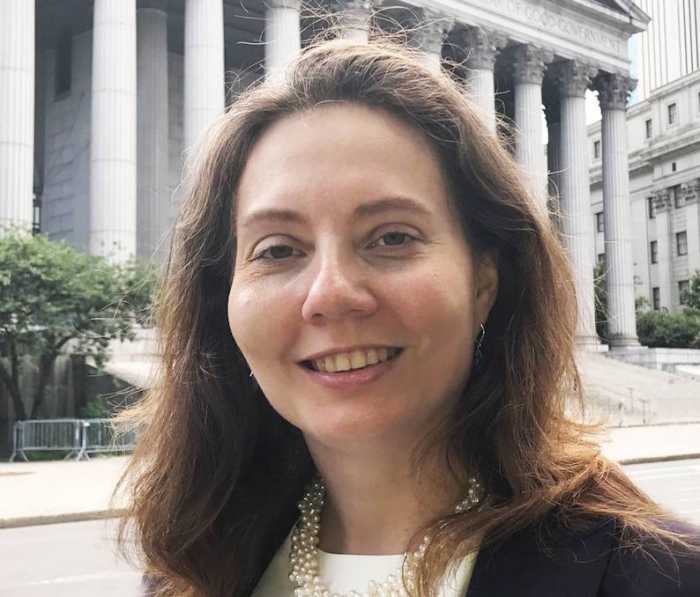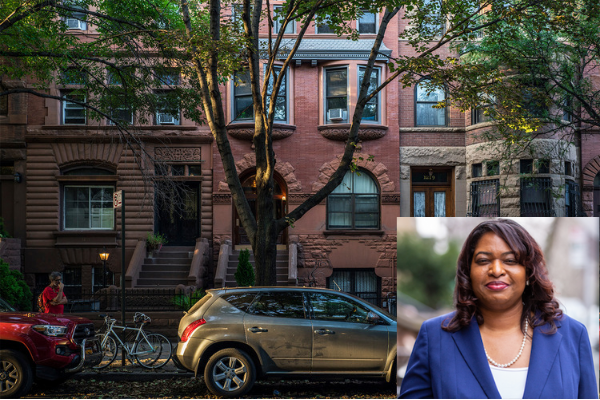
Is Kings County Surrogate Court Judge Harriet Thompson a whistleblower or is she a rogue judge not worthy to wear the robes?
Either way, if the New York Daily News seriously wants to clean up the Kings County Surrogate Court – which oversees the sometimes considerable estates of dead Brooklynites who did not leave a will or heirs – they should look beyond scapegoating Thompson and machine politics and turn some attention to the court’s institutional mechanisms.
Thompson’s problems began shortly after her being elected and taking office on Jan. 1, 2019 as one of the two Kings County Surrogate Judges. Prior to being elected, she was elected and served with distinction and without complaint for nine years as a Brooklyn Civil Court and Acting Supreme Court Judge.
According to Thompson, shortly after joining the surrogate court bench, she had a falling out with Deputy Chief Administrative Judge (DCAJ) of New York City George J. Silver, over his green-lighting of staff in her law department before she came on the bench. When she dissented to this, Silver stonewalled her request to further staff up and then ordered the court system’s Inspector General to investigate her, said Thompson.
Thompson also found problems with the Surrogate Court’s Public Administrator Richard Buckheit, who allegedly is very close to Silver. Buckheit’s office is directly responsible for choosing the vendors, including attorneys and property assessors, to handle these estates.
Thompson had some reason to be skeptical of Buckheit. Both an independent audit and an audit from Comptroller Scott Stringer’s office found the Public Administrator’s Office under Buckheit is fairly dysfunctional and sometimes loses track of real estate property and the money transacted. There were also complaints that Bucheit and his office had a toxic environment.
The last straw for Thompson was when she read Public Administrator Buckheit’s Report on Settled Accounts for August 2019, and found he allegedly falsely represented that an estate was closed, when in fact he did not deliver a check to close out the estate.
Following this report, Thompson suspended Buckheit from working in her court. Then earlier this month, Office of Court Administration Chief Administrative Judge Lawrence Marks relieved Thompson of her duties over allegations of bias and discrimination confirmed by the investigation of the court’s Inspector General.
A case could be made that Thompson was relieved of her duties as retribution for suspending Buckheit, and the allegations that led to Thompson’s dismissal have not been made public.
Despite this lack of transparency, the Daily News wrote an editorial stating, “Thompson’s energies are focused on illegally interfering with the city commissioner [Buckheit] overseeing estates without wills or heirs.”
This despite when Buckheight sued to get his job back, State Supreme Court Judge Wayne P. Saitta ruled Thompson had every right to suspend him.
Underneath this messy issue is some animosity between Thompson – an educated and outspoken Christian Black woman – and some in the LGBTQ and Jewish community, which allegedly exercises a lot of control in the administration of the court system and civil service jobs involved.
The sometimes acrimonious relationship between some in the Black and the LGBTQ community goes beyond the court system. It most recently came to a head in comedian Dave Chappelle’s last Netflix special.
This column is not a defense of Thompson or an attack on the LGBTQ and Jewish community because there is a lot of hearsay and allegations of bigotry coming from all sides. But like any citizen, Judge Thompson – an elected civil servant – has a right to her day in court, including a fair and impartial hearing of her grievances.
Tar and feathering Thompson in the media – the court of public opinion – does no justice to either Thompson or to fixing possible institutional problems in Brooklyn’s Surrogate Court.










